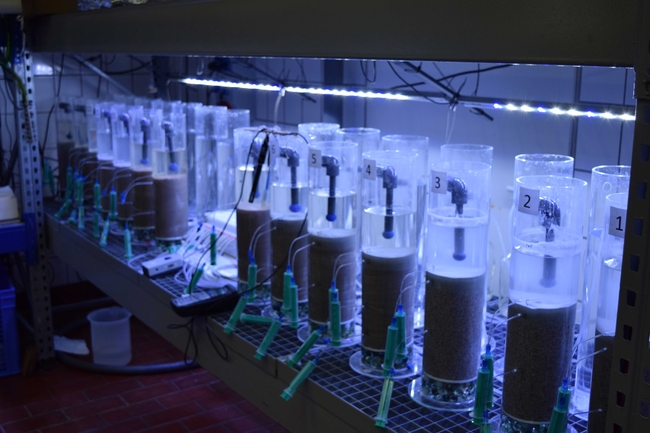As part of the RETAKE consortium in the CDRMare Mission, the project focuses on exploring and developing a technique called Alkalinity Enhancement (AE) in warm coastal waters, particularly in regions where it can efficiently remove CO2 from the atmosphere. The project specifically investigates the potential of AE in the warm coastal regions of India.
By studying how the unique features of these coastal areas, such as their shape, geological characteristics, sediment types, and weathering rates, affect AE, the project aims to demonstrate its effectiveness as a method for permanent CO2 removal.
In India, Researchers will collect data on the area's hydrogeology and environmental conditions throughout different seasons. This information will help in understanding the natural variations and specific characteristics of the coastal regions. In the lab, we will study the weathering rates of a mineral called olivine, which is known for its ability to enhance alkalinity. We will simulate the conditions found in the field, including how water flows through the sediments, to see how quickly the olivine weathers and how much CO2 it can potentially absorb. Using the data from fieldwork and lab experiments, we will create detailed numerical reactive transport models. These models will predict the effectiveness of AE in the target region, offering insights without needing extensive real-world weathering experiments.
The results of the RETAKE project will be shared with scientists, policymakers, and the general public through accessible fact sheets. These will highlight the potential of AE to sustainably use marine carbon sinks. By contributing valuable data and insights, the project supports global discussions on climate policy and the pursuit of sustainability goals.
Project partners |
|---|
|
Prof. N. J. Raju, Jawaharlal Nehru University, New Delhi, India Dr K. Sreelash, National Centre for Earth Science Studies, Thiruvananthapuram, India |





